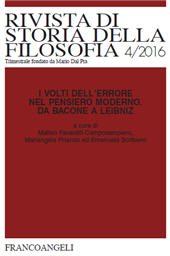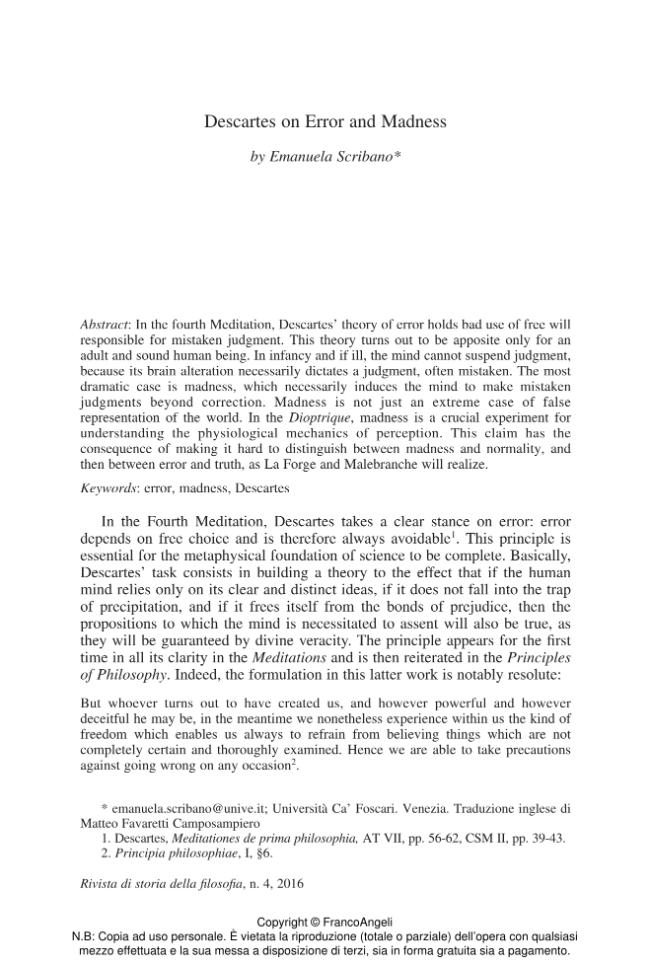Descartes on error and madness
599-613 p.
In the fourth Meditation, Descartes' theory of error holds bad use of free will responsible for mistaken judgment. This theory turns out to be apposite only for an adult and sound human being. In infancy and if ill, the mind cannot suspend judgment, because its brain alteration necessarily dictates a judgment, often mistaken. The most dramatic case is madness, which necessarily induces the mind to make mistaken judgments beyond correction. Madness is not just an extreme case of false representation of the world. In the Dioptrique, madness is a crucial experiment for understanding the physiological mechanics of perception. This claim has the consequence of making it hard to distinguish between madness and normality, and then between error and truth, as La Forge and Malebranche will realize. [Publisher's Text].
Fait partie de
Rivista di storia della filosofia : LXXI, 4, 2016-
Articles du même numéro (disponibles individuellement)
-
Informations
Code DOI : 10.3280/SF2016-004004
ISSN: 1972-5558
KEYWORDS
- Error, madness, Descartes



